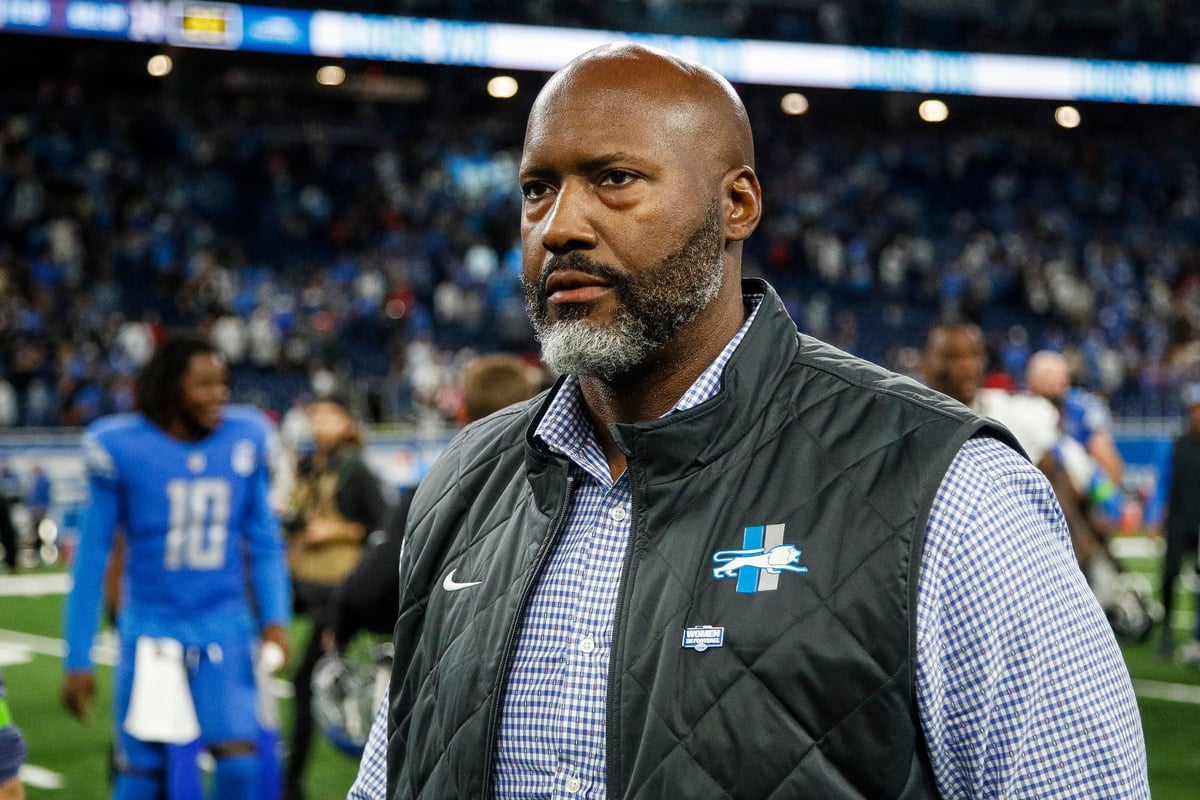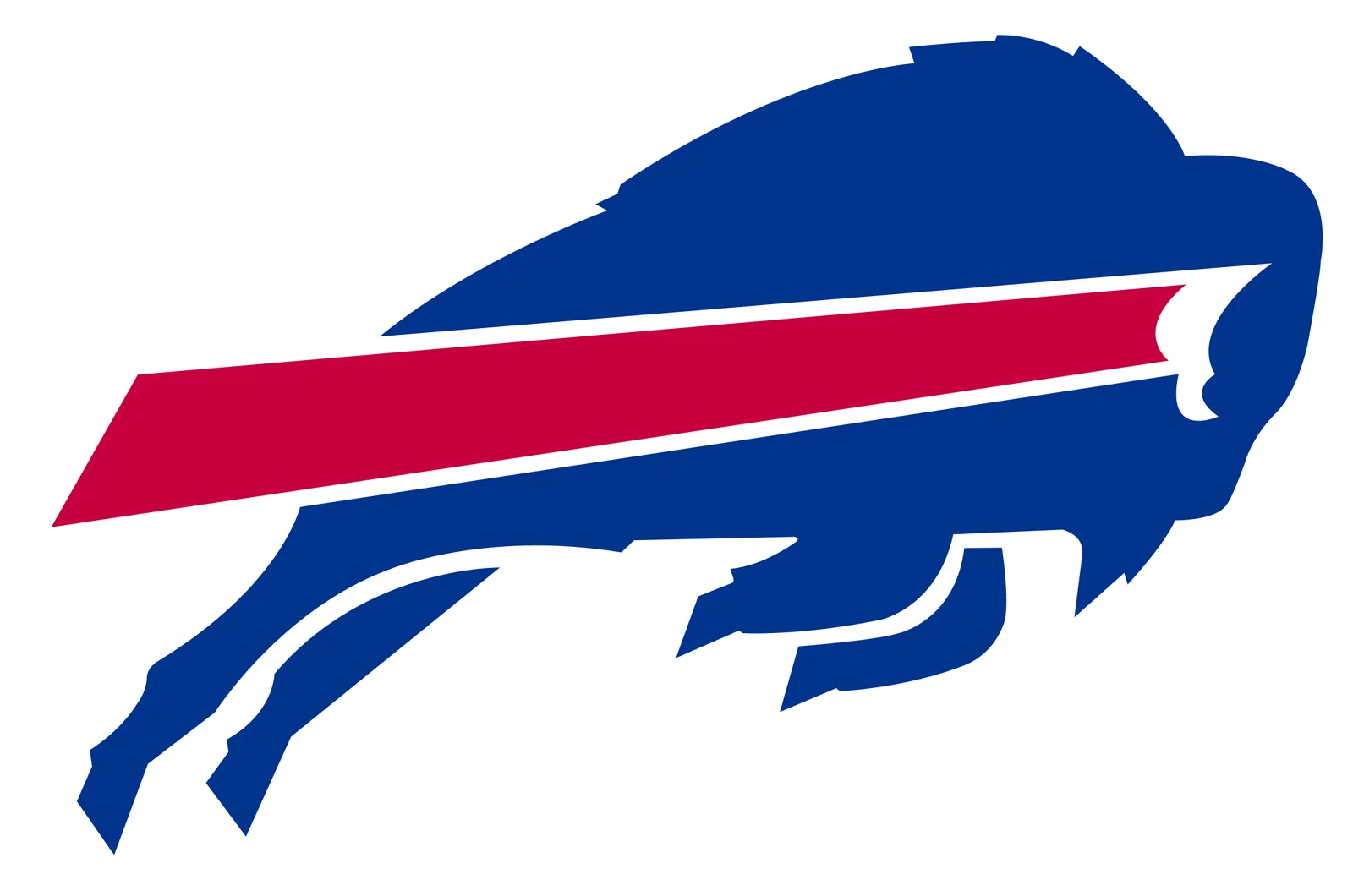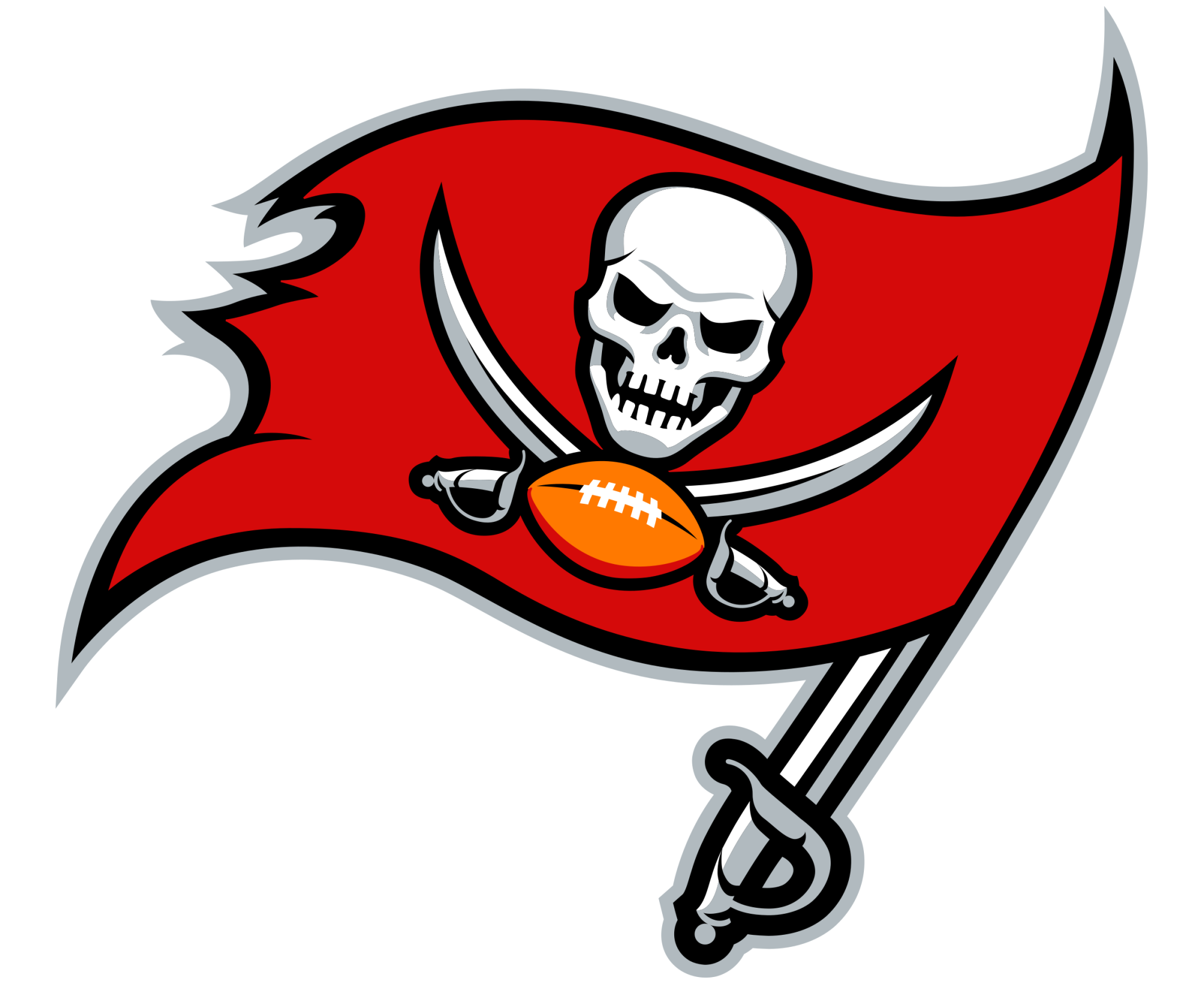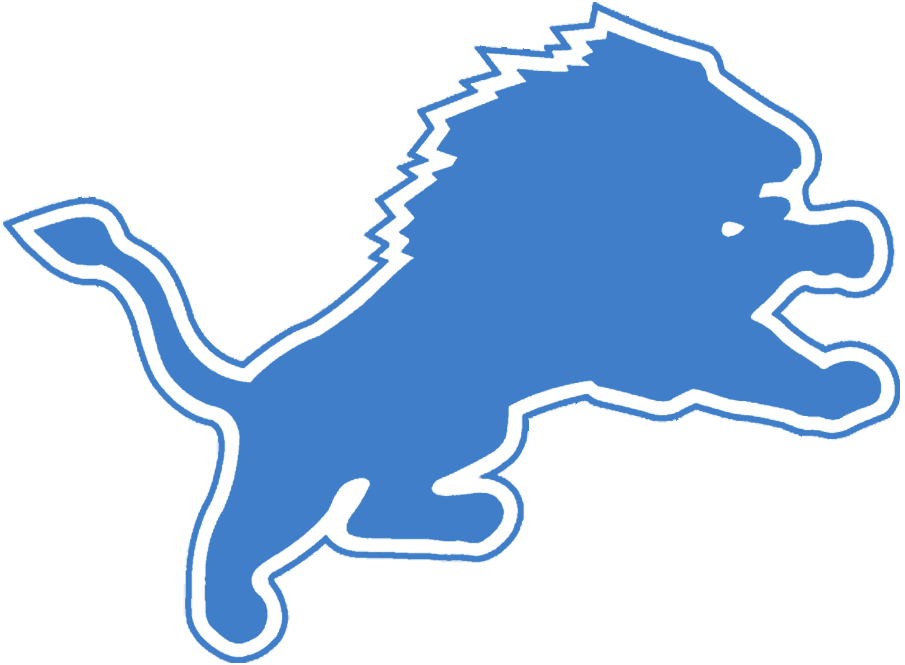Detroit’s Brad Holmes Can Beat the NFL’s Toughest Math Equation

Credit: Junfu Han via Imagn Images
We all know about the challenging offseason the Detroit Lions are undertaking. Not only have they lost both Aaron Glenn and Ben Johnson to other teams (including Johnson taking his offense to the rival Chicago Bears), but they have to keep ahead of the gravitational pull toward parity following a charmed 15-2 regular season. Still, this might be a cakewalk compared to what’s in store a year from now.
Even with the coordinator turnover, Detroit has a good chance of winning the offseason in 2025. They enter free agency armed with over $43 million in effective cap space, and their names have already been connected to Myles Garrett and Cooper Kupp on the trade market. They can go in a number of directions to upgrading a legit Super Bowl contender.
A big reason for this is that Jared Goff‘s cap hit for 2025 is sitting in the NFL’s sweet spot. Since the creation of the salary cap, a rule of thumb has been that your quarterback can’t take up more than 13% of your team’s resources, and probably shouldn’t take up more than 12%. Don’t worry; Goff’s making $32.6 million against the cap next season, a tidy 11.0%.
The real difficulty begins in 2026.
That’s the year when Goff’s cap hit balloons to $69.6 million, which hits 24% of the Lions’ available cap — or twice as high of a percentage of the cap as all but four Super Bowl-winning QBs (Steve Young in 1994, Peyton Manning in 2015, Tom Brady in 2020, and Patrick Mahomes last year) have ever had.
Look at those four quarterbacks. We’re not talking about just four Hall of Famers. We’re talking about four players you could put on the NFL’s Mount Rushmore and have most people go, “Sure, that checks out.” We love Goff, he’s great. He won’t ever be at that level, though, and it’s unfair to ask him to be Brady or Mahomes.
Theoretically, there are only two ways to beat the NFL’s math equation when you have a quarterback making that much money. First, you’ve got to have an all-time great quarterback playing out of his mind. That’s the road each of those four teams took. Or, Detroit might have to try proving, you have to stack the rest of your roster with elite, cheap talent to push you over the edge.
That’s the team-building philosophy that the Lions worked with this year, and it might have worked had injuries not bit this team as hard as any contender in recent memory. Aiden Hutchinson, Jahmyr Gibbs, Jameson Williams, Kerby Joseph, and Brian Branch were all on rookie contracts. Even players on second contracts, like Amon-Ra St. Brown or Alim McNeill, were in the early, team-friendly stages of their next deals. That allows for the kind of wiggle room needed to survive a season in which the defense sustained double-digit major injuries.
2025 is essentially the last year of that cheap status quo before Goff and a whole lot of other players get in line for raises. St. Brown’s cap hit will jump to $33.1 million next season, McNeill’s cap hit is set to hit $29 million, while Penei Sewell will earn $28 million against the cap. Detroit will need to give Joseph a new contract after next season, and, best-case scenario, exercise the fifth-year option on Hutchinson and Williams.
After 2026, similar decisions must be made for Gibbs, Branch, Sam LaPorta, and Jack Campbell. That won’t be easy to navigate at all, with Goff set to make $54.6 million, or 17.4% against the cap.
How will Holmes manage to thrive in a post-2025 world? He’s going to have to absolutely nail his draft picks… again.
We already have proof of concept on this, as it’s hard to find someone with a better track record at the draft as of late than Holmes. The dude simply does not miss, even when the football world has thought he was nuts. While the teams ahead of him fell in love with flash and skill, taking Kyle Pitts, Ja’Marr Chase, and Jaylen Waddle with the fourth, fifth, and sixth selections in 2021, Holmes didn’t panic. He hung back and rounded out his offensive line with Sewell. Forget about the Triple Crown Chase just won; we all know who got the better of those two elite players.
That was the start of a run of first-rounders that goes: Sewell, Hutchinson, Williams, Gibbs (who everyone thought Holmes was crazy for drafting 12th overall), and Campbell. Even if you want to be as ungenerous as possible and give up on Terrion Arnold (and we’re not), that’s still five home runs in six chances.
But now, Holmes is going to have to do it while picking in the 20s and 30s in the first round. But again, we know he can find value late. Forget about picks like Branch and LaPorta in the second round, Joseph and McNeill in the third round, or St. Brown in the fourth. Look at his history as the Director of College Scouting with the LA Rams, and you’ll see that he was great at finding value there, too.
Of course, it helps when you can find a Hall of Famer like Aaron Donald in the first round, as Holmes’ Rams did in 2014, but look at the 2018 team that went to the Super Bowl and the 2021 team that won, and you’ll see plenty of starters that Holmes took past the first round.
Third-rounder Kupp is the headliner, but second-rounder Rob Havenstein and LaMarcus Joyner, third-rounder John Johnson, and fourth-rounders Tyler Higbee, Samson Ebukam, and Josh Reynolds all started eight or more games for the 2018 Rams. While Holmes (and No. 1 overall quarterback Goff) had already jumped ship to the Lions in 2021, Kupp, Higbee, and Havenstein all started 10 or more games for the Super Bowl-winning Rams.
So did second-rounders Van Jefferson and Taylor Rapp, third-rounder Darrell Henderson, fourth-rounders Brian Allen and Greg Gaines, fifth-rounder David Edwards, and sixth-rounder Jordan Fuller.
Is it going to be a tough task for Holmes to do it again? Sure. But he’s already done it twice — and arguably, three times. That’s the kind of track record you want on your side when you’re going up the NFL’s hardest math equation.
Up Next





